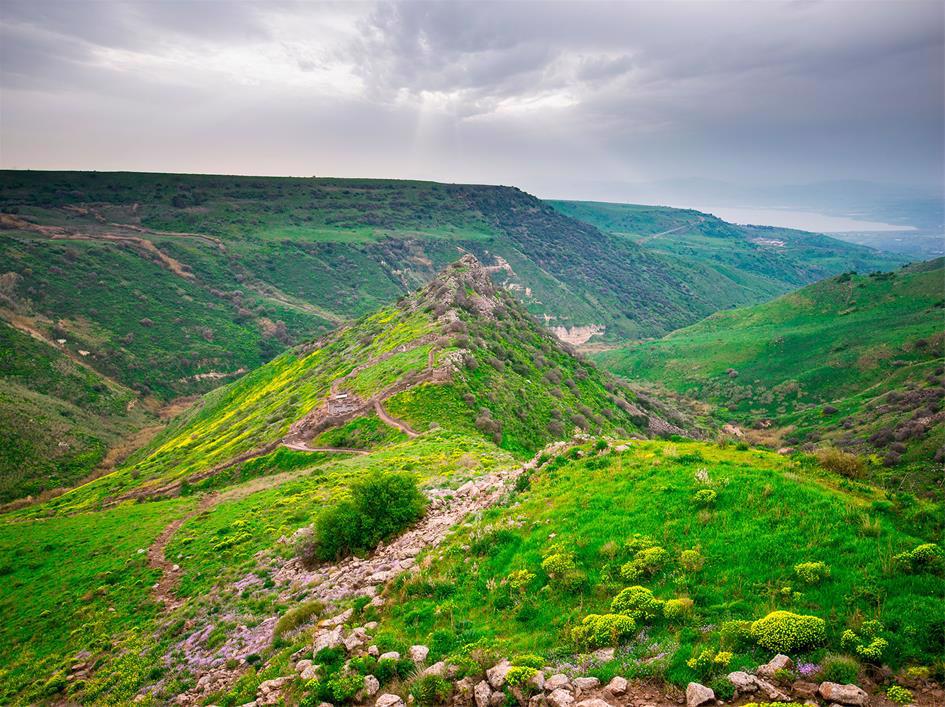I hate my Life
By Dr. Noel Rabinowitz
November 26, 2024
At last — it’s raining in Israel. This has been one of the driest winters on record in Israel in nearly sixty years. The forecast calls for more rain – and when it rains in Israel, it comes in the form of a torrential down pour – but it’s unlikely that we’ll see the record rainfalls of the last four years that have left the Sea of Galilee at its highest level in 30 years. Nevertheless, and even though modern technology has reduced Israel’s dependence on rainfall, Israelis still breathe a collective sigh of relief when the heavens open and the rain starts falling. And that brings us to James 5:7-8.
James writes to the messianic Jewish community scattered throughout the Diaspora. Having just demonstrated that God will bring an end to the oppression of the rich in verses 1-6, James urges his brothers to exercise patient endurance “until the coming of the Lord” (v.7). When the Lord returns, he will make things right. The evil will be punished and the righteous rewarded. So, be patient.
That, of course, is easier said than done. James therefore gives his readers an example of patience: “See how the farmer waits for the precious fruit of the earth, being patient about it, until it receives the πρόϊμον (proimon, early) and the ὄψιμον (opsimon, late) rains” (v.7).
James has in mind here the small farmer who guarded that sack of seeds he was about to plant in the ground as though his life, and the life of his family, depended on it. In fact, it did. The crops that those seeds would produce really were precious. Small famers in first century Israel lived at a subsistence level. If the crop failed, hunger and starvation, let alone bankruptcy and eviction, were real possibilities.
Everything depends on the rain. The early rains are called the Yoreh (יורה) in Hebrew. The Yoreh rains mark the beginning of the agricultural rainy season in Israel and fall in late October and early November – or as in the case this year, late December and early January. The farmer could not even begin his task without these rains, which softened the dry and cracked ground and prepared it for plowing and sowing. The Yoreh rains enabled the seed planted in that ground to germinate and sprout its tender shoots.
Once the farmer plows the ground and sows the seed, he can do nothing but wait, wait patiently, albeit anxiously, for the מלקוש (malkosh), the late or spring rains, to arrive and finish the job. The malkosh rains fall in late April and early May and mark the end of the rainy season. The heavier downpours of the malkosh fall on fields filled with stalks of grain. They prepare the crops for harvest, easily penetrating the softened ground and enabling the grain to ripen and mature.
But what if the early rains don’t arrive to soften the ground? And what if the late rains don’t fall to ripen the grain for harvest? The crops would fail. Hunger. Starvation. Financial ruin. The farmer, nevertheless, overcomes these fears and waits patiently, albeit anxiously, because he realizes these things are outside of his control — but more importantly, because he believes that God will remain faithful to his Covenant and send rain to water the land (Deut. 11:13-14).
James encourages his readers to follow the farmer’s example and wait patiently until the coming of the Lord. They are to endure hardship without retaliating against those who oppress them. When the Lord comes, he will set things right, rewarding the righteous and punishing the wicked.

